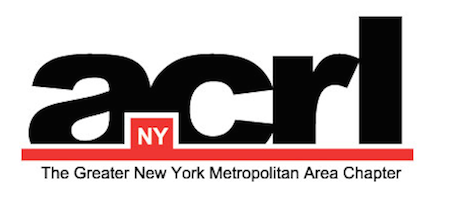Call for Proposals: Critical Pedagogy Symposium: Decentering the West
Introduction
The 2025 Critical Pedagogy Symposium (CPS), now in its 3rd iteration since 2021, seeks to provide space for library workers and information professionals of all kinds to collaborate in critical pedagogical thought and critical practice. We want to build community, and to imagine new ways of doing our work by naming and dismantling oppressive systems and imagining new worlds. In this biennial symposium, our overarching aim is to collaborate in growing creative, generous, and mutually supportive intersectional and anti-oppressive work within Library and Information Science (LIS) so that we hone a sharp language for interrogating and dismantling inequities of all kinds and for doing justice work together.
2025 Critical Pedagogy Symposium
The 2025 Symposium will examine global barriers and their impact on library and archival pedagogy. This year’s Symposium is inspired by the pedagogies and practices of those thinking about colonialism, imperialism, transnationalism, epistemic injustice, and other frameworks for Decentering the West. With this in mind, we have created three broad tracks through which to consider Decentering the West in our critical pedagogy and practice.
Knowledge practices (diasporic, Indigenous, or ancestral): this track focuses on the ways libraries, archives, and their workers are pulling from historical knowledge banks to provide new ways of knowing, learning, and disseminating knowledge. Prompts for this track may include, but are not limited to:
How can traditions, folklore, artifacts, etc. be integrated into information skills programs, our services, and courses in a critical way?
What are methods for teaching that engage users with ancestral connection?
How do we decenter Western or Global North perspectives in our instruction, collections, cataloging, and/or archival work? What does it mean to decenter these perspectives?
How do we source collections with materials that are not available via mainstream publishers?
Community Building (as Critical Pedagogy): this track focuses on the co-creation or re-creation of knowledge with communities both inside and outside the formal library, archives, or institution. Prompts for this track may include, but are not limited to:
How do we work in community with those facing challenges to their communities and materials, ie, censorship, funding, institutional access, etc.?
How do libraries further anti-oppressive work given their relationships with oppressive (corporate, imperialist, etc.) institutions including vendors and parent organizations (universities, municipalities, etc.)?
What would “successful” community building look like?
What are examples of community-engaged art and/or service work, and what are the implications of the library’s roles in these often under-resourced projects?
Information Access (and Global Capitalism): this track focuses on the issues surrounding information access, the commodification of information, and the role of libraries in pedagogy. Prompts for this track may include, but are not limited to:
How have digital inclusion and open access projects been successful in providing access to information, services and technology in different countries or geographic regions?
How does the conglomeration of publishers and the shift from owning to renting information impact librarianship?
How does the proliferation and expansion of generative AI and related AI tools impact access to information?
How does the use/collection of Big Data and surveillance impact information access?
How do we teach in the classroom in a way that is critical of global capitalism?
Call for Proposals – APPLY HERE.
We invite imaginative thinking with no boundaries that may focus on prefigurative, thought-provoking, and imagined worlds. Proposals may be panels, individual presentations, workshops, peer-review sessions, or facilitated discussions that consider ideas you are working through (and want to discuss), and/or encourage community building. Review the 2023 and 2021 symposium schedules to get a sense of previous offerings.
Submit your proposal! Complete this form by the dates below with the option for a preliminary submission for feedback prior to the final deadline. You may send any questions to criticallibrarysymposium@gmail.com.
Timeline:
Early deadline for feedback on your proposal – December 4th, 2024
Final deadline for proposals – January 15th, 2025
Notification of acceptance – February 15th, 2025
Symposium Date – Week of June 9th – 13th, 2025
We invite proposals from the perspective of reference, instruction, technical services, library administration, leadership, collection development, design, digital scholarship, open education, and archives. Additional areas of interest include work that extends to other parts of the information community, related to outreach, liaison work, research dissemination, scholarly communications, and programming. We are excited to hear from people from countries outside of the West, specifically outside of the United States, to present in English. Proposals will be accepted for presenting during the following times: 7am – 9pm EST (New York); 3pm – 5am in UAE (Abu Dhabi); 7pm – 9am CST (Shanghai).
The Critical Pedagogy Symposium is co-sponsored by: Barnard Library, NYU Libraries, Universidad de Puerto Rico, Library Information Library Council of CUNY, Metropolitan Library Council, Association of Library and Information Science Educators Innovate Pedagogies Special Interest Group, The Faculty Resource Network, Library Juice Press, and growing.
